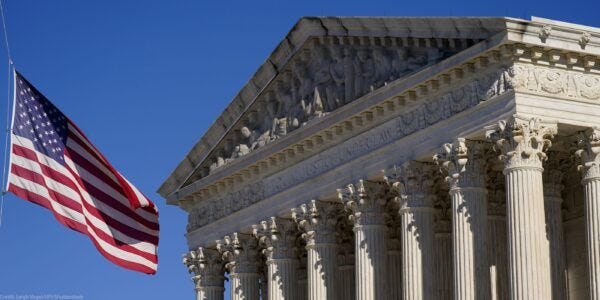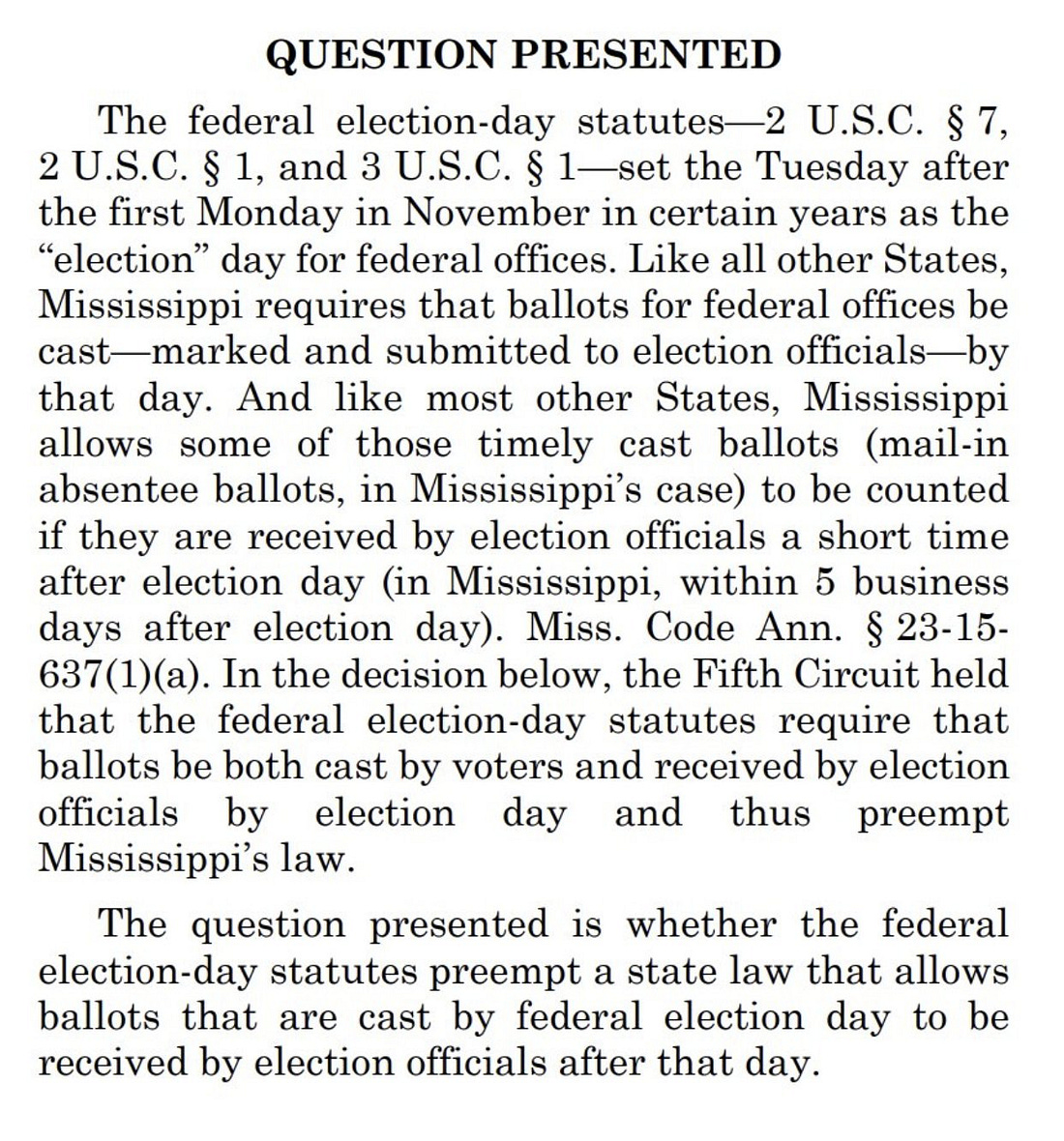SCOTUS to decide if states can count ballots that arrive after Election Day
Educate. Advocate. Mitigate. Activate!
|
|
|
|||||||||||||||
Today, the U.S. Supreme Court agreed to decide whether federal law prohibits states from counting ballots that arrive after Election Day. Judges are being asked to define the true meaning of “ELECTION DAY.”
As part of the list of orders last Friday, the court took up Watson v. Republican National Committee, a challenge by the Republican National Committee and others to a Mississippi law (as well as similar laws in 30 other states and the District of Columbia) that allow mail-in ballots to be counted as long as they are received within five business days after Election Day.
The dispute began in 2024, when the RNC, along with the Mississippi GOP and two individuals, filed a federal lawsuit challenging the law. Their case was later joined with a similar case brought by the Libertarian Party of MS.
A federal judge in Gulfport, MS, upheld the law, rejecting the challengers’ contention that it conflicted with federal law.
The challengers appealed to the U.S. Court of Appeals for the 5th Circuit, which reversed the decision. On Oct 25, 2024, the three-judge panel ruled unanimously that the date elections officials receive the ballot is all that matters. The mailing date and postmark date are irrelevant. If a ballot hasn’t been received by election day, it’s too late. “Federal law requires voters to take timely steps to vote by Election Day,”Judge Oldham wrote. “And federal law does not permit the State of Mississippi to extend the period for voting by one day, five days, or 100 days.”
Mississippi appealed to SCOTUS in June, arguing “an ‘election’ is the conclusive choice of an officer” – which occurs by the deadline as long as voters cast their ballots by then, even if election officials do not receive them by that day.
In July, a group of 19 Democrat aligned states and DC filed a “friend of the court” brief supporting MS, saying the 5th Circuit’s ruling is “both wrong and destabilizing.”
The Republican National Committee responded that:
-
Federal law (2 U.S.C. § 7, 3 U.S.C. § 1) defines Election Day as the single day on which ballots must be cast and received.
-
Allowing post-Election Day receipt risks post-election manipulation and undermines the constitutional need for one Election Day (citing Foster v. Love, 522 U.S. 67 (1997)).
SCOTUS will likely hear oral arguments sometime next year, with a decision to follow by late June or early July.
It’s difficult to overstate the significance of the case. One way cheating in elections can occur is because in many states, ‘election season’ is now so long that anyone can monitor the “matchback” reports and know if registered voters’ ballots have been voted.
It is easy for nefarious actors to vote for registered voters who did not actually vote by forging signatures, get their ballots through via lax signature verification policies, and then be counted after election day.
After ‘Election Day’ - under the guise of Mail-in Voting - Anonymous ballots, upon separation from their outer envelopes, are thus co-mingled with the ballots of legitimate voters. With these policies, thieves know it’s too late to find their fraudulent ballots.
Of note: One of the groups that stepped in to defend the ‘election season’ concept of having the ability to accept and process ballots well after election day was the Mississippi Alliance for Retired Americans, an affiliate of the Washington-based AFL-CIO union-created front group that successfully sued in Washington State to obtain a court ruling that trampled the WA Constitution provision that a voter must be a WA resident for at least 30 days in order to be able to become registered to vote in WA.
Bill Bruch
Bill Bruch is the WA State GOP Election Integrity Committee Chairman (5th year), WAGOP Executive Board Member (5th Year), Skagit County GOP Chairman (9th year), Citizen Journalist, Olympic Conference 2021 Activist of the Year Award Winner, Business Owner, 2020 WA State House Representative Candidate, Former Council Member, and WA State 2016 and 2024 RNC National Convention Delegate.

